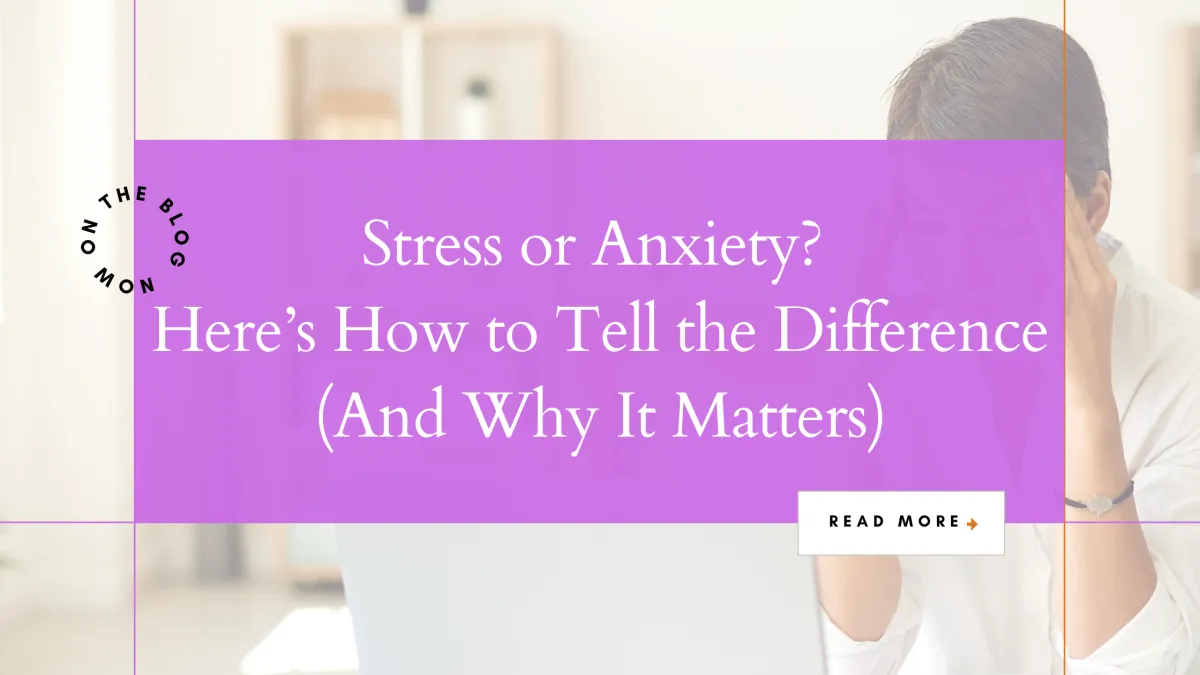
Stress or Anxiety? Here’s How to Tell the Difference (And Why It Matters)
Do you ever wonder if your racing heart, overwhelmed mind, or body tension is a sign of stress or something deeper, like anxiety? You’re not alone. Many people struggle to tell the difference between these two common mental health challenges.
At Shifa Health, I often hear this question from my patients—and it’s a topic I explore in depth in my upcoming book, The Ultimate Toolkit to Rewire Your Anxious Brain. Understanding the difference between stress and anxiety is the first step to choosing the right tools for healing and improving your mental well-being.
Stress vs. Anxiety: What’s the Difference?
Here’s a short excerpt from my book, featuring Sarah, a young woman seeking clarity:
“What’s the actual difference between stress and anxiety? I mean, they feel so similar: my heart races, I can’t think straight, and sometimes I have shortness of breath. Are they really the same thing?”
Her grandfather, a wise and warm figure, explains:
Stress is your body’s reaction to something immediate and external, such as a deadline, a traffic jam, or a challenging conversation. It has a clear trigger, and once the event passes, your body typically returns to normal.
Anxiety, on the other hand, often lingers without a specific cause. It can appear even when everything seems fine. Anxiety is your mind’s way of preparing for potential threats, making it persistent and future-focused.
Both stress and anxiety trigger your body’s fight-or-flight response, causing symptoms like:
Racing heart
Shortness of breath
Muscle tension
Feeling overwhelmed
The difference? Stress usually ends. Anxiety often doesn’t.
Over time, chronic anxiety can rewire your brain, alter your thinking patterns, and lead to panic attacks, social anxiety, or depression.
How to Manage Stress and Anxiety Effectively
The good news is that once you recognize what you’re experiencing, you can start to heal and regain control. In my book, I share science-backed strategies to manage both stress and anxiety, helping you not just cope but grow stronger.
Ask yourself this simple question to identify what’s happening:
“Is this reaction about something specific at the moment, or is it something deeper?”
This insight helps you determine whether you need to:
Take a mental health break
Seek support or reassurance.
Explore deeper healing tools.
Practical Tools for Stress and Anxiety Relief
When stress or anxiety strikes, there are effective strategies to calm your mind and restore balance. These include:
Mindfulness and meditation
Breathing exercises to reduce physical tension
Daily routines to build emotional resilience
Cognitive strategies to reframe anxious thoughts
By using these tools consistently, you can prevent chronic anxiety, reduce stress, and improve your overall mental health.
Want to Learn More?
If this excerpt resonated with you, I invite you to join my Early Reader Group. You’ll receive a free early copy of The Ultimate Toolkit to Rewire Your Anxious Brain, packed with practical tools to calm your mind, regain control, and feel better.
👉 Click here to join and get your free copy
Take the next step toward understanding stress and anxiety and reclaiming your mental well-being—together.
